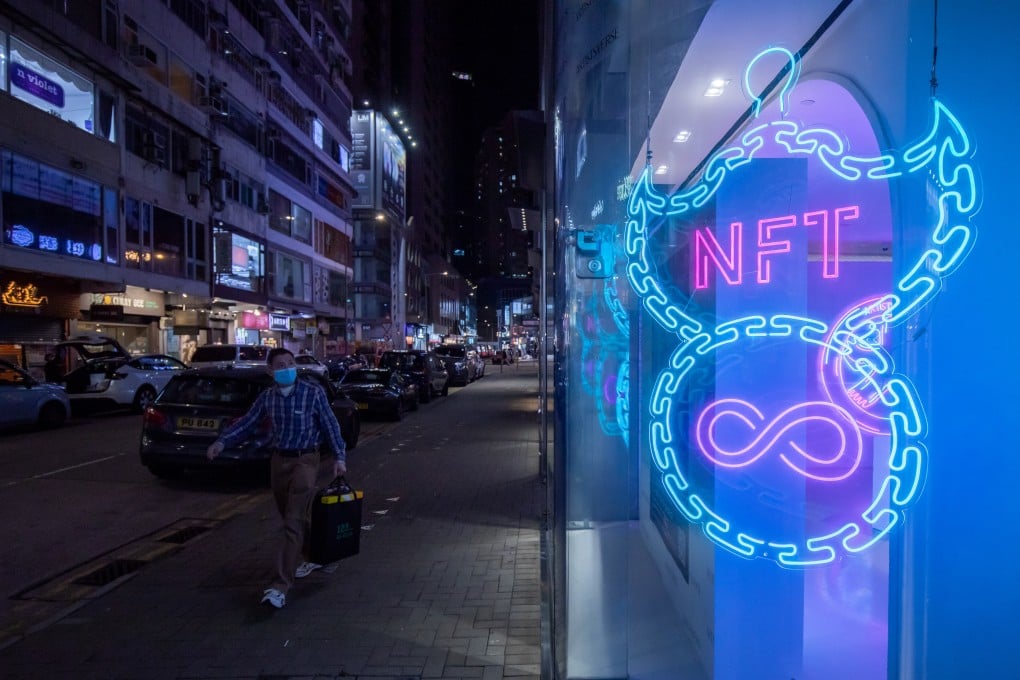Hong Kong extends regulatory rules to NFT-based collective investment schemes, warning investors to be mindful of risks
- Issuers of tokens in Hong Kong or those targeting Hong Kong investors need to obtain a licence from the Securities and Futures Commission
- Global NFT sales have fallen from between 160,000 and 200,000 per day in November, to around 20,000 per day this week, according to Nonfungible.com

Hong Kong’s securities watchdog for the first time said that some non-fungible tokens (NFTs) that constitute investment products have to be regulated, and warned investors of the risks involved with investing in such tokens.
Parties that provide those tokens in Hong Kong or target Hong Kong investors need to obtain a licence from the SFC, and certain authorisation requirements could also be triggered, the SFC said.
Under the ordinance, a CIS generally includes projects that enable participants to receive profits, income or other returns, especially if participants do not have day-to-day control over the management of the assets.
“As with other virtual assets, NFTs are exposed to heightened risks including illiquid secondary markets, volatility, opaque pricing, hacking and fraud,” the SFC said. “Investors should be mindful of these risks, and if they cannot fully understand them and bear the potential losses, they should not invest in NFTs.”
